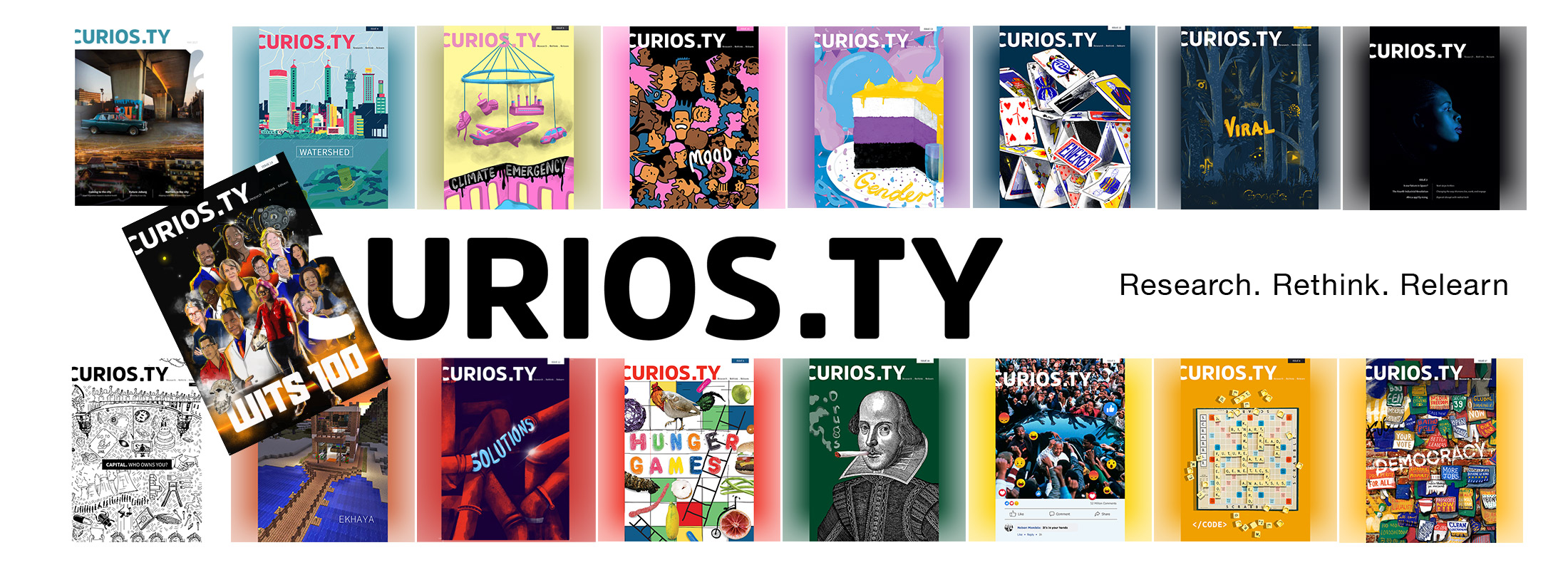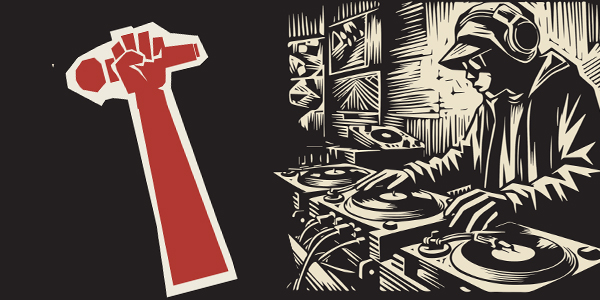
Marching to new drums
- Leanne Rencken
A generation of ‘born frees’ are heading to the polls in 2024. What is the soundtrack, if any, that underscores this election year?

When considering how music serves a democratic agenda, the struggle songs of the liberation movement immediately come to mind. Historically South Africa has been a country that protests with song, toyi-toying its way through revolution. Leaders call for change, and the nation responds in harmonious verse.
Professor Emeritus of Social Anthropology at Wits, David Coplan, says, “We all know the most iconic struggle songs. Many of them were hymns but were sung strictly for political purposes during the struggle – songs like Senzenina [What Have We Done?] and Hamilton Masiza’s Vukani Mawethu [Wake Up My People].”
The progress of protest
While these hymns and other struggle songs have historical significance and are still often invoked with a sense of nostalgia, they’re not the go-to anthems of today. Neither is kwaito, the youth-led post-1994 pop/rap genre that spoke to both liberation and disillusionment and peaked in the early 2010s.
Can kwaito’s successors, such as popular music genre amapiano, or even gqom, fill the protest-music gap? Probably not, but perhaps that’s not the point. Coplan theorises that “the young generation is looking for other avenues to keep the country going for them. Maybe the most political thing about music is that it represents social mobility.” Given South African singer-songwriter, Tyla Seethal’s recent Grammy win for her global hit, Water, and her deal with US label Epic Records and her large social media following, he may be right.
New concepts
Lebogang Ngwatle is a Master's student in the Department of Cultural Policy and Management in the Wits School of Arts and has a slightly different take. Ngwatle believes that “the messaging and the revolution in the contemporary sound we hear is extremely spiritual. There are the drums, the chanting, references to idioms of old, questions about self-identity, and land – not directly, but it’s clear that land is connected to spirituality.”
While amapiano and gqom are mainstream, says Ngwatle, there are other concept bands like iPhupho L’Ka Biko that are rooted in Black Consciousness and Africanism. Founded by Wits Music alumnus, Nhlanhla Ngqaqu, in 2015, the experimental sound of iPhupho L’Ka Biko is rooted in jazz and draws on themes such as spirituality, love, ritual, culture, their envisaged future, and displacement. They gained prominence as proponents of the #FeesMustFall movement and have recently released their first album, Azania.
Chantal Willie-Petersen, renowned jazz musician, lecturer and PhD candidate in Wits Music adds, “A lot of South African artists that I am aware of and that I am drawn to are those that provoke the idea of what democracy should look like in our country. Artists like Benjamin Jephta [in Wits Music] who has recently released an album called, Born Coloured, Not Born-Free, and others who are still talking around the ideas of racism, poverty, inequality, war, gender-based violence, the way we do life, nation building, etc. There are so many inconsistencies, inequalities, and instabilities that music addresses, and I feel that music plays a great role in establishing what our Constitution asks for theoretically, but what it is still very much lacking practically.”
Arts economics
Can the powerful messaging behind music like this only be validated by its engagement with a rapt audience, intent on driving its mission forward, and equally important, shouldn’t it be able to support artists financially?
Ngwatle, whose research interrogates the role community art centres played in creating a cultural and financial support system for artists, believes that with the closure of many of these centres the South African government needs to step in with respect to both audience and artist development.
“In South Africa the biggest concern that underpins all policy is social cohesion,” she says. “What better way to achieve social cohesion than through the arts? My research interest asks how we can communicate about art this way and measure its contribution to social cohesion? What indicators would we use?”
Singing from the same song sheet
Willie-Peterson believes that activists will always find an audience if they address the needs of society. She also believes that participation in music is important for the artist because it is transactional, but it’s vital for everyone because it’s inherently restorative: “Audiences will find a space where music is there to contribute towards cultural enhancement and towards the seasons in our lives where we need to be carried by something that is of a divine nature, that speaks to the healing of the body, the mind and the reconciliation of nations.”
- Leanne Rencken is a freelance writer.
- This article first appeared in Curiosity, a research magazine produced by Wits Communications and the Research Office.
- Read more in the 17th issue, themed: #Democracy, we turn to our academics and professional staff for their research, perspectives and commentary on both the progress and shortcomings in our democracy, and democracies elsewhere.

